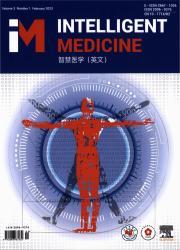Large language models-powered clinical decision support: enhancing or replacing human expertise?
IF 6.9
Q1 COMPUTER SCIENCE, INTERDISCIPLINARY APPLICATIONS
引用次数: 0
Abstract
This editorial presents an optimistic yet cautious perspective on the development, deployment, and regulation of large language models (LLMs) in the field of medicine. It is essential to strike a balance between embracing the benefits of artificial intelligence-driven solutions and preserving the human touch that is vital for providing compassionate care. The exponential growth of medical data has paved the way for the integration of LLMs into healthcare, offering unprecedented opportunities to enhance clinical decision-making and alleviate physicians' workloads. Recently, LLMs have exhibited remarkable potential across various clinical scenarios, including streamlining diagnostic processes, optimizing radiology reports, and providing personalized treatment recommendations. However, the implementation of LLMs in healthcare is not without its challenges. Issues such as the scarcity of high-quality annotated data, privacy concerns, and the risk of generating misleading or overconfident information are significant hurdles that must be addressed. Moreover, while LLMs can replace certain basic tasks traditionally performed by humans, it is crucial to recognize that senior clinicians play an irreplaceable role in complex decision-making and providing emotional support to patients. By harnessing the power of LLMs to augment human capabilities while maintaining essential human elements within healthcare, we might shape a future where artificial intelligence and human intelligence coexist harmoniously. Prioritizing ethical development and deployment for artificial intelligence, empowering healthcare professionals, and safeguarding patient privacy will be key to realizing the full potential of LLMs in revolutionizing healthcare delivery. Through ongoing research, collaboration, and adaptation, responsible integration of LLMs holds promise for elevating both quality and accessibility globally, ultimately creating a more efficient, personalized, and patient-centric healthcare system.
大型语言模型驱动的临床决策支持:增强还是取代人类专业知识?
这篇社论对医学领域的大型语言模型(llm)的发展、部署和监管提出了乐观而谨慎的观点。在接受人工智能驱动的解决方案的好处和保留对提供富有同情心的护理至关重要的人性化之间取得平衡是至关重要的。医疗数据的指数级增长为法学硕士与医疗保健的整合铺平了道路,为加强临床决策和减轻医生的工作量提供了前所未有的机会。最近,法学硕士在各种临床场景中显示出显著的潜力,包括简化诊断过程、优化放射学报告和提供个性化治疗建议。然而,在医疗保健领域实施法学硕士并非没有挑战。诸如缺乏高质量的注释数据、隐私问题以及产生误导性或过度自信信息的风险等问题是必须解决的重大障碍。此外,虽然法学硕士可以取代传统上由人类执行的某些基本任务,但认识到高级临床医生在复杂决策和为患者提供情感支持方面发挥着不可替代的作用是至关重要的。通过利用法学硕士的力量来增强人类的能力,同时在医疗保健中保持基本的人类元素,我们可能会塑造一个人工智能和人类智能和谐共存的未来。优先考虑人工智能的道德发展和部署,赋予医疗保健专业人员权力,保护患者隐私,将是实现法学硕士在彻底改变医疗保健服务方面的全部潜力的关键。通过持续的研究、合作和适应,负责任的法学硕士整合有望在全球范围内提高质量和可及性,最终创建一个更高效、个性化和以患者为中心的医疗保健系统。
本文章由计算机程序翻译,如有差异,请以英文原文为准。
求助全文
约1分钟内获得全文
求助全文
来源期刊

Intelligent medicine
Surgery, Radiology and Imaging, Artificial Intelligence, Biomedical Engineering
CiteScore
5.20
自引率
0.00%
发文量
19
 求助内容:
求助内容: 应助结果提醒方式:
应助结果提醒方式:


